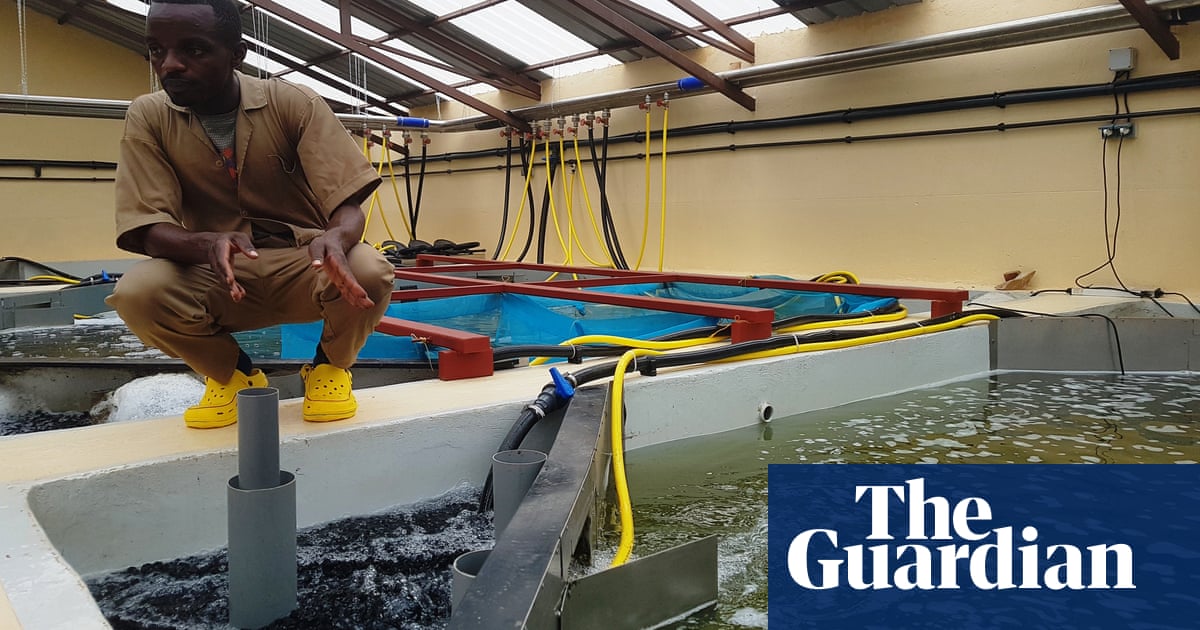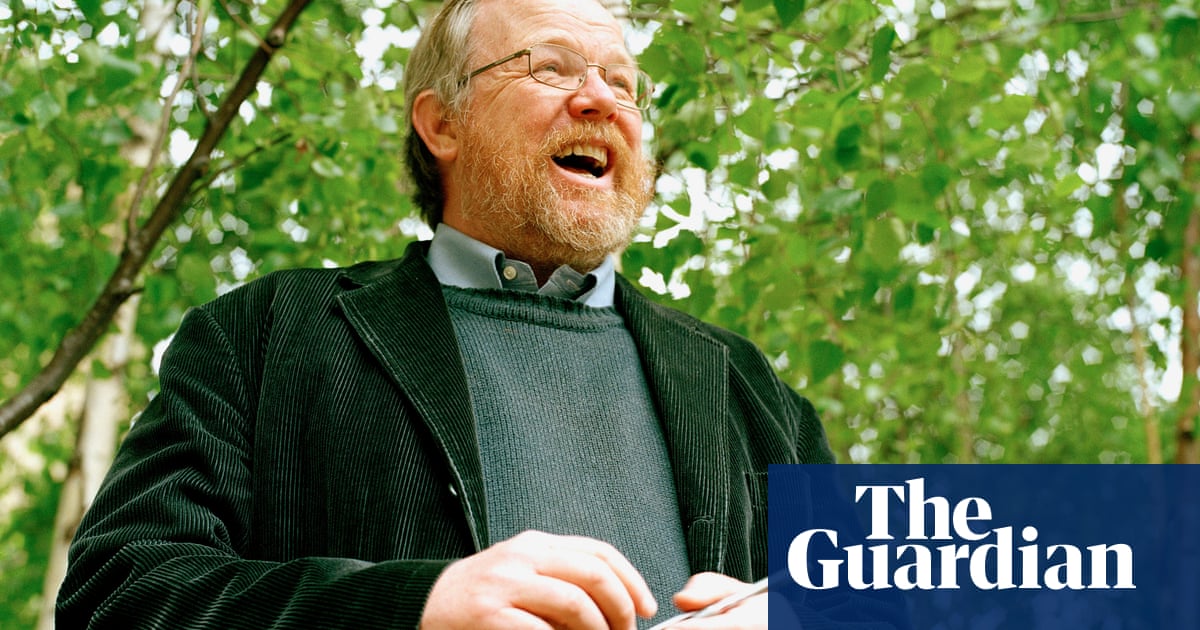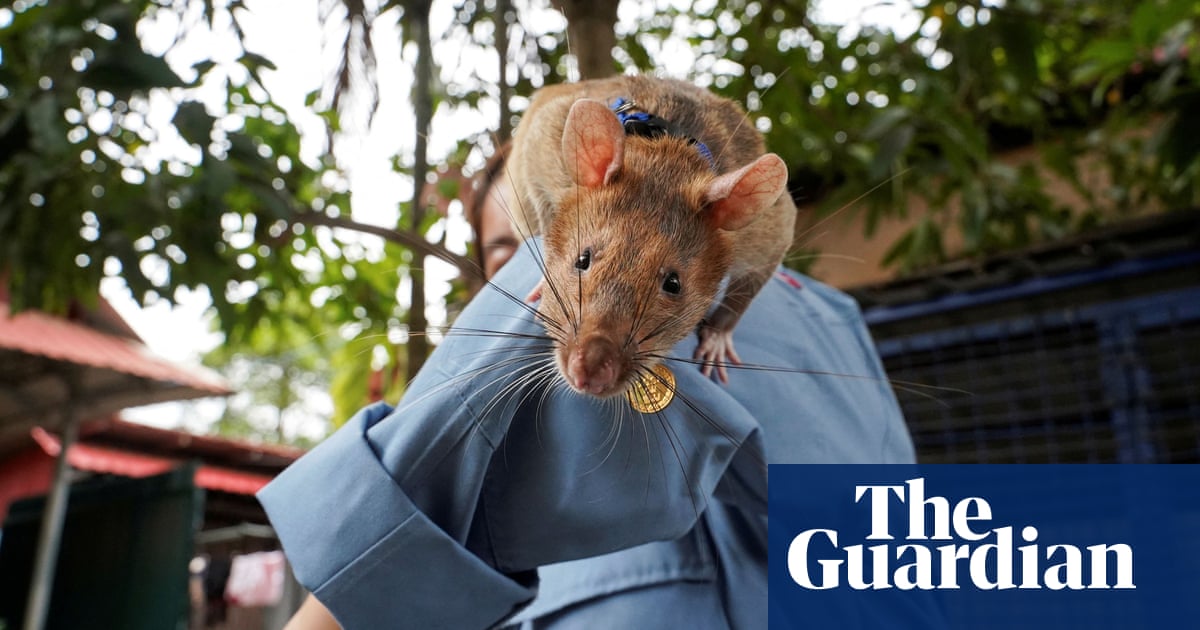
For years, Eric Ndagijimana’s father, Barthazard, poached fish from Gishanda Lake in eastern Rwanda to feed his family. The subsistence farmer struggled to make ends meet and used to catch fish illegally from the lakes of nearby Akagera national park until a government crackdown on poaching in 2010 pushed him and others to Gishanda.
The unchecked plundering depleted the lake’s stocks of tilapia. Soon there were no fish left to either eat or sell.
Now Ndagijimana is on a mission to reverse the damage. He manages Gishanda Fish Farm, which is based on the banks of the lake to cultivate tilapia and restock the waters.
In April, the first fingerlings (young fish) raised in the farm were released into the water. More than 100,000 have been released so far and the ambition is to produce 1.5 million fingerlings each year.
“My father was a fisher who poached for money, which paid for my school fees. I wanted to carry on his legacy but in a way that is legal, professional and would benefit the community as a whole,” says Ndagijimana, as he sprinkles granules of fish food into one of 16 tanks in the farm’s main building.
The farm opened in October with funding and support from the conservation organisation African Parks; FoodTechAfrica, a public-private partnership of 21 companies and universities; and the Dutch government.
Ndagijimana wants the farm to produce about 30 tonnes of tilapia annually, of which at least 10% will be sold to the 600 households who live around the lake at half the market price – 1,500 Rwandan francs (£1.13) for a kilo, instead of 3,000. It is hoped the move will not only deter illegal fishing but improve nutrition for the villagers.
“It is exciting for me to work as a fish farm manager where I was born. When my father congratulates me, seeing how our community is changing positively with my intervention, I am motivated further,” says Ndagijimana, who studied aquaculture at the University of Rwanda and spent a year in Israel researching sustainable agriculture.
He always had ambitions to return home to work. After graduation in 2016, he managed five fish ponds near the capital, Kigali, receiving additional training from the Rwanda Agriculture Board, “to fully prepare myself for the challenges of managing a fish farm before heading home”.
The farm, which is powered by solar panels and requires a tenth of the water of traditional fish farming by using a recycling and filtration system, is also providing jobs and extra amenities. Two villages now have electricity – and there are plans to connect more – and one school has a borehole. People will be offered training in breeding catfish at three demo ponds, and in growing organic vegetables at the farm.
“With the free training for Gishanda community members in sustainable fishing, they have started to consider themselves guardians of the lake,” says Eline Nyirandajimana, who is the farm’s hatchery manager.
The rehabilitation of Lake Gishanda has resulted in the first sightings of otters, which have not been seen in the area before.
Leah Dufitumukiza, a single mother of a three-year-old, has a job cleaning the fish tanks and assisting the farm managers, and says she is no longer dependent on her parents. “Before the fish farm, I could never imagine the life I am living today,” she says.
Eventually, Ndagijimana would like the villagers to manage the farm, and they are working with district officials to identify other suitable lakes in the area that could be rehabilitated.
“We are here to make things happen at the farm and the progress is good,” he says. “With the success … the reward of our efforts will be given back to the community.”












